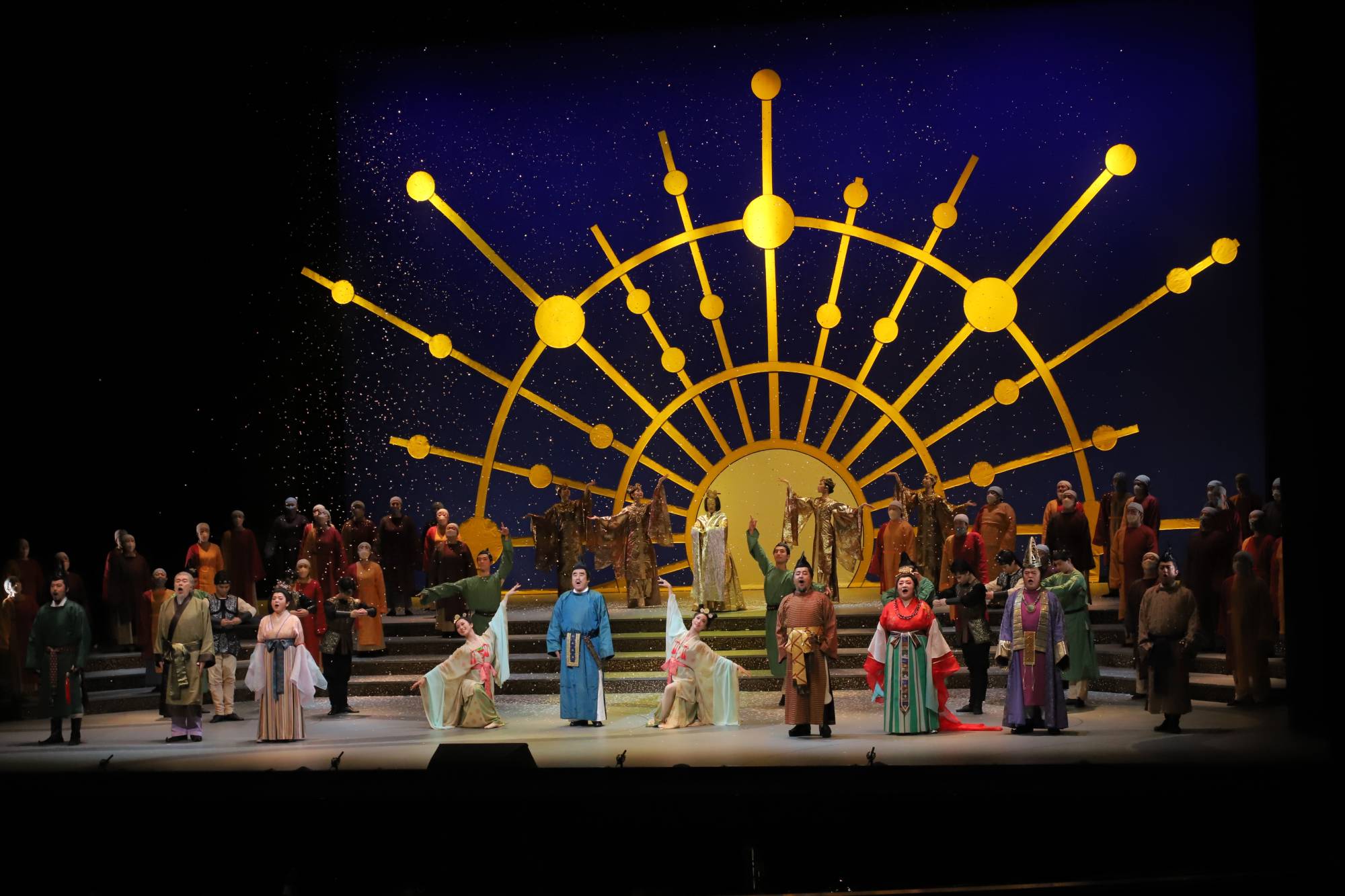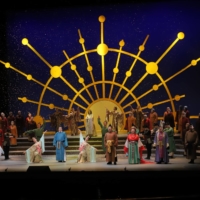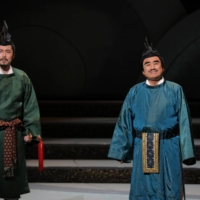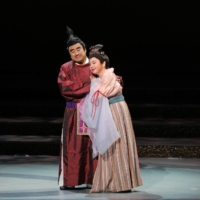“I have a dream. I want to make this country warless and peaceful,” the prince declares to his wife during an opera set in sixth century Japan.
In an age of global insecurity and mounting concerns, the opera “Shotoku Taishi” (“Prince Shotoku”) was performed at the New National Theatre in Tokyo on Sept. 16 and 18, leaving the two-day audience of about 3,400 with a strong message containing a timeless wish for peace.
Shotoku, also known as Prince Umayado, was a legendary regent of the Asuka Period (552-645) who contributed to establishing the nation’s social system and spreading Buddhism in Japan. The opera dramatized an important part of his life when he decided to dedicate himself to the creation of an ideal nation.
The role of Prince Shotoku was played by Toshu Fukami, also known as Haruhisa Handa, who is an operatic baritone, philanthropist, business leader, calligrapher, painter and noh performer. He was also the chief producer of the entire event. He started his music training at the age of 40, receiving his master’s degree from the Western Australian Academy of Performing Arts, and was later awarded the title of First Grade Opera Singer by the China National Opera and Dance Drama Theater.
The opera also incorporated ballet and noh performances to make the entire work deeper and more elegant. The performances were directed and choreographed respectively by Tokyo City Ballet Director Nobuyoshi Nakajima and Manjiro Tatsumi, a noh performer of the Shite-kata Hosho school who is deemed a holder of Important Intangible Cultural Property. The music, composed by three people including Tomiko Koujiba, was beautifully played by the Tokyo City Philharmonic Orchestra, including some pieces accompanied by a choir.
The event was hosted by the Tokyo Art Foundation in cooperation with the International Foundation for Arts and Culture. TAF was founded in 2011 to promote various forms of art and entertainment, while IFAC has been promoting social welfare activities through music and art events since its establishment in 1996.
“Shotoku Taishi” was first performed in 2002, and its first performance in two decades was held to commemorate the 1,400th year since the prince’s death. The prince has often been deified and sometimes even depicted as a supernatural being in stories based on his life. However, Fukami explained in the program that this opera sheds light on the prince’s humanity.
“We wanted to take a fresh look at Prince Shotoku without deifying him and as a realistic human being who held onto his ideals despite various sufferings and setbacks,” he said.
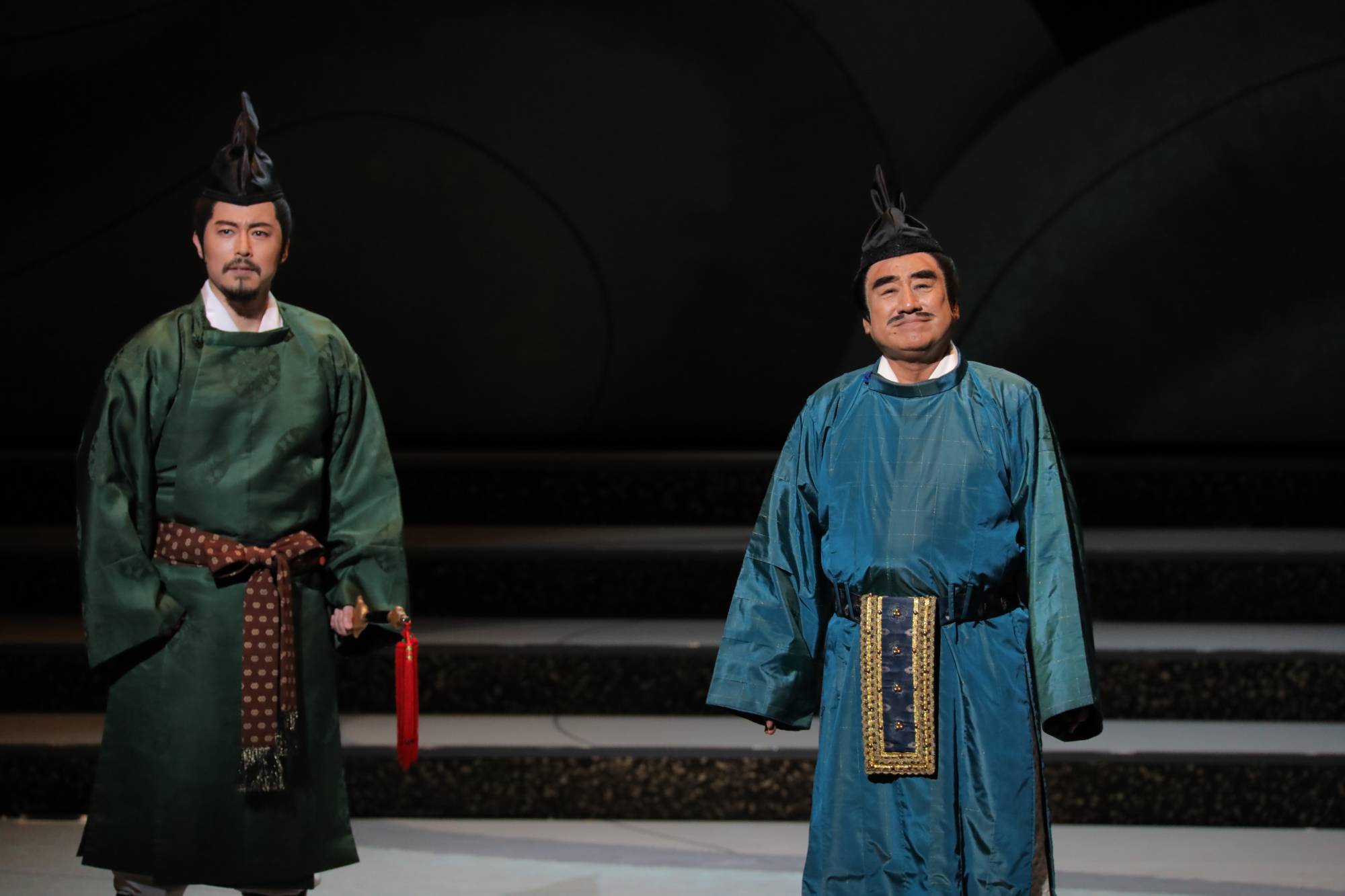
This perspective was made even more remarkable for this year’s performance. Major revisions were made to the original script to make it more historically accurate yet dramatic, with more focus on the prince’s Buddhist side. For this reason, Hata no Kawakatsu, who is believed to have been a close secretary to the prince, was inserted into the new script. The music was renewed as well with the addition of arias and duets.
The first act started with a battle, followed by a story of the politics of power centered around aristocratic politician Soga no Umako, performed by Ryoichi Shimizu. Prince Shotoku found the situation wrong and revealed his resolution to create an ideal nation based on respect for Buddha and order, to his wife, Tojiko no Iratsume (performed by soprano Hiroko Onuki), and Hata no Kawakatsu (performed by baritone Koya Muramatsu).
The second act depicted how the prince put in place various policies based on the principles of equality, peace and global perspective under the rule of Empress Suiko, and how Soga no Umako began to see the prince as a political rival and a threat. It also shows how Tojiko no Iratsume, a daughter of Soga no Umako, was torn between her father and her husband.
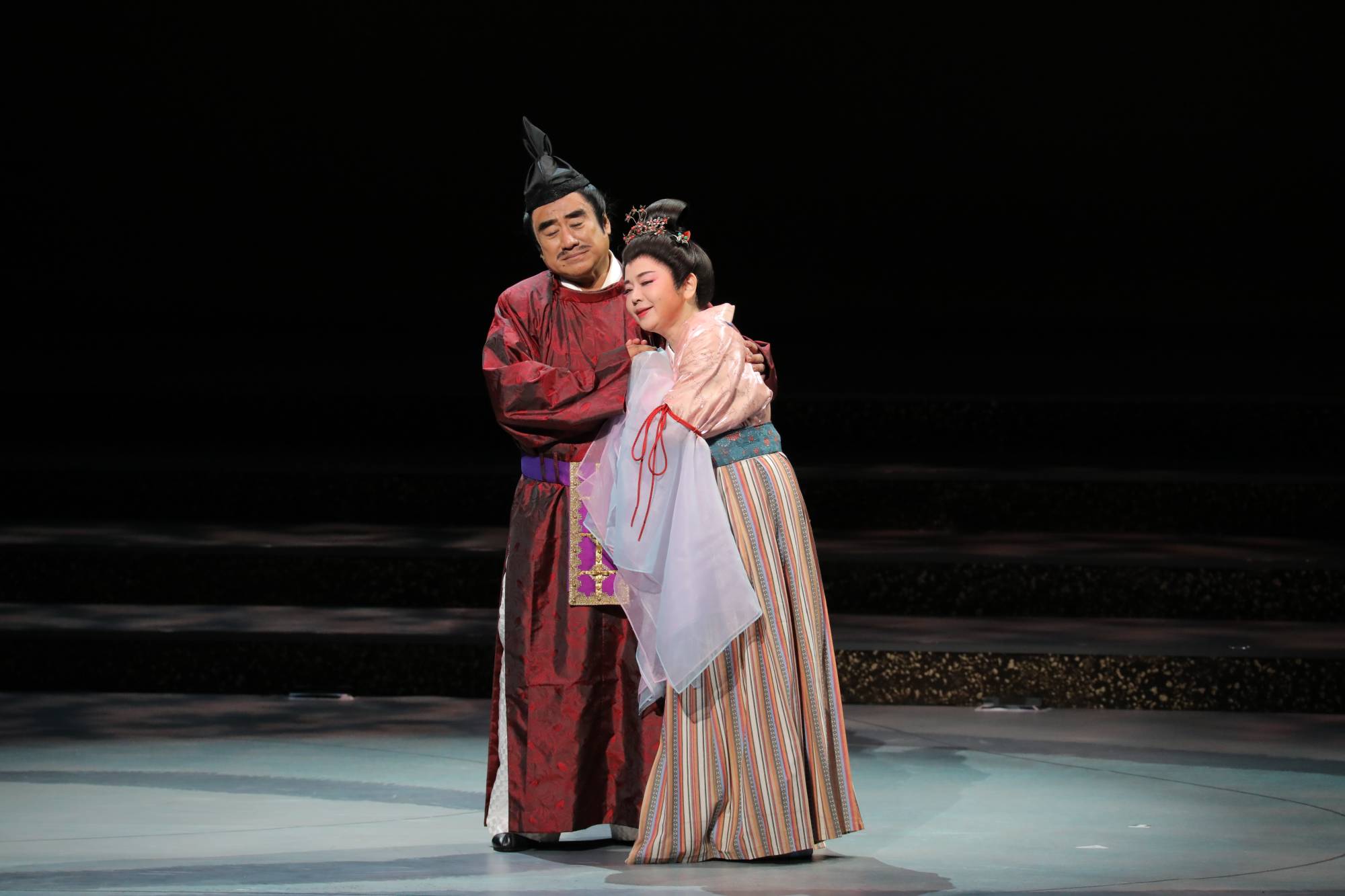
In the third act, the prince is grieving the loss of his wife and suffering from a loss of confidence when he receives salvation from Kuze Kannon (a deity of mercy also known as Kannon Bosatsu) and encouragement from his supporters.
“There are no Kannon masks in noh. We created a mask for Kuze Kannon just for this show, which was worn by Mito Ishiguro, a Hosho school noh performer,” Fukami explained in the program. The noh dance by Kuze Kannon and Prince Shotoku was subtle and profound, letting the audience quietly build anticipation toward the climax, when the prince renews his commitment to making an ideal nation with greater confidence and strength. The performance ended with warm applause from the audience that never seemed to stop.
Fukami left a comment in the program saying that this opera is asking the people of today’s Japan how they should respond to the message left by Prince Shotoku 1,400 years ago at a time when a globalized Japan is facing numerous challenges.



